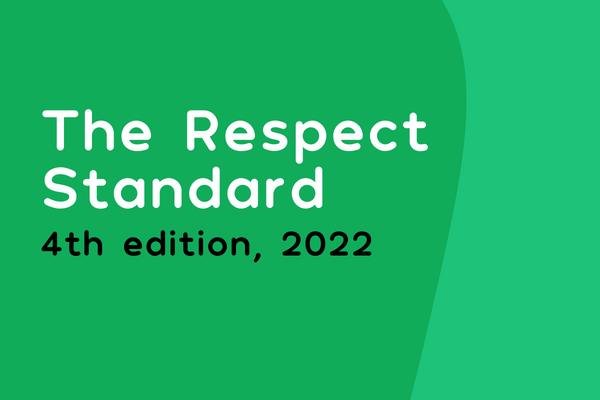What is the Respect Standard?
Work with perpetrators of domestic abuse has the potential to increase harm to survivors if not conducted safely. That’s why quality assurance is key: to ensure survivors are safe and that their wellbeing is prioritised.
The Respect Standard is a quality assurance framework outlining a set of principles that guide our accreditation process. They cover areas including organisational management, safe service delivery and responding to diversity. All Respect Accredited services are held to the Standard to ensure that only safe, effective work with perpetrators of domestic abuse takes place. As such, we only refer to and recommend Respect-accredited services.
All accredited services are required to apply for a new accreditation assessment every 3 years, and a service can only be considered “accredited” when it has passed its accreditation assessment.
The Respect Standard
FAQs about the Respect Standard
What do services say about accreditation?
“Working towards Respect accreditation gave us the tools to develop and grow Spotlight, our perpetrator programme. The accreditation process allowed us to build upon and strengthen the service, and encouraged us to reflect on and embed the principles that underpin our intervention. We are grateful for the support and guidance that we have received from Respect, and are so proud to be a newly Respect-accredited service.” – Miranda at London Borough of Redbridge
“I feel [accreditation] has strengthened our project going forward. As project manager I feel a certain level of confidence that our project is now as safe as possible for victims and associated children” – Darren, Drive at Safer Merthyr Tydfil
What do sector experts say about the Respect Standard?
The Respect Standard is endorsed by a number of sector experts including the Domestic Abuse Commissioner, CEOs from across the VAWG sector, eminent academics, the NPCC coordinator for tackling VAWG, and APPC Victims' Leads, among others.
The impact of the Respect Standard
In 2022, a report was published by Durham University’s Centre for Research into Violence and Abuse, mapping the benefits of the Respect Standard. The report draws on interviews with funders, commissioners and policy leads, and incorporates feedback from Respect-accredited services to give a picture of the Standard’s impact and enduring influence.
For further information on accreditation, email Accreditation Assessor, Emma Hier.





